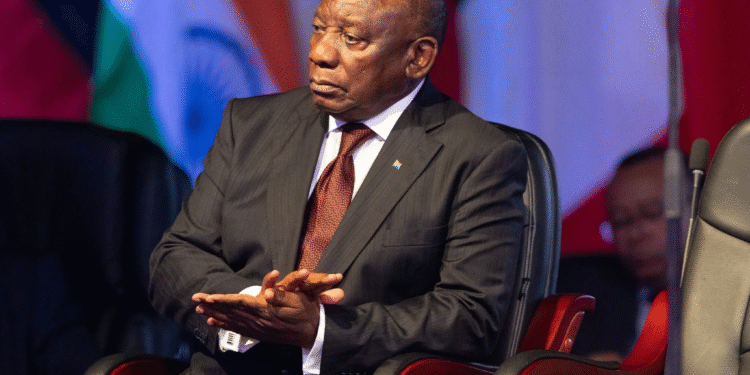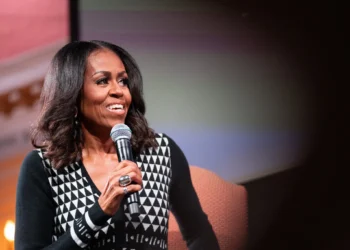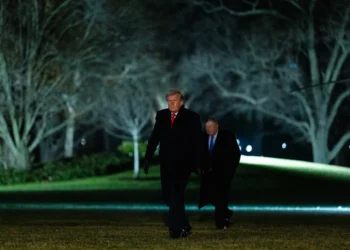Trump to Insist South Africa’s President Regarding Racial Legislation
A week after Trump accepting a group of white South Africans as refugees, the U.S. president is anticipated to raise the issue of alleged discrimination against them during a meeting at the White House.
In a meeting set for Wednesday at the White House, President Trump intends to urge South African President Cyril Ramaphosa to repeal the nation’s racial equality legislation and take more steps to safeguard Afrikaners, a white ethnic minority, according to a White House spokesperson.
The meeting occurs a little over a week after the Trump administration invited a group of white South Africans to the United States as refugees, claiming that they had been persecuted in their native land. Mr. Trump’s administration has been attempting to extend his fight to eradicate policies related to diversity and redressing historical injustices around the world, which has increased tensions between the two nations over racial concerns.
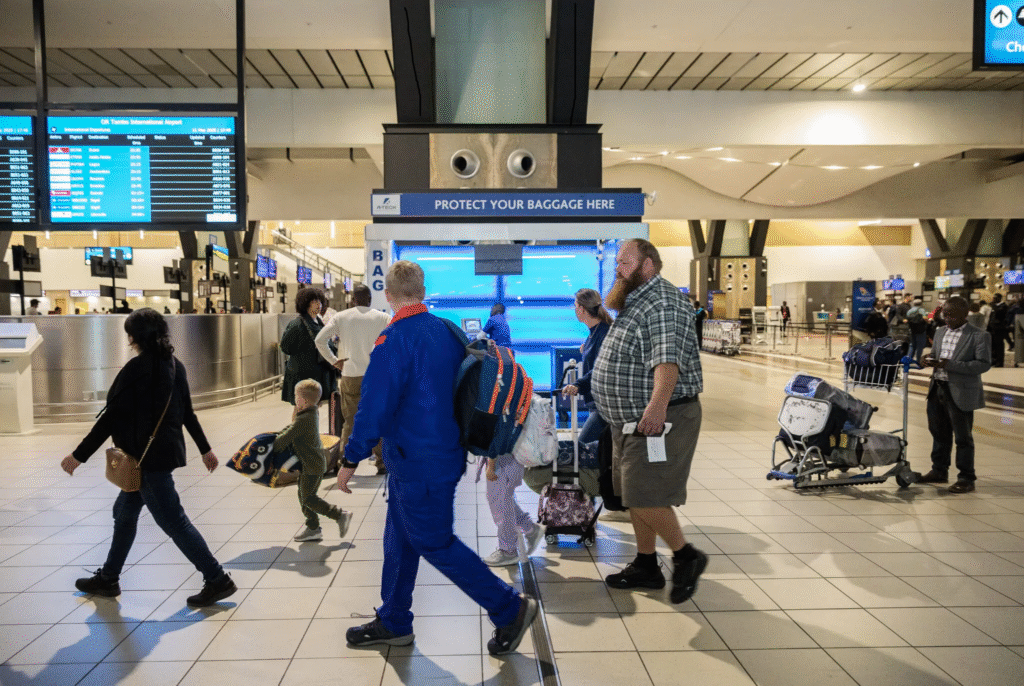
The official, who discussed the meeting on the condition of anonymity, claimed that one of the subjects that Mr. Trump is likely to bring up is the alleged discrimination against Afrikaners. A U.S.-funded charter plane transported people to the United States, including members of the white minority group, who are descended from European colonialists who governed during apartheid.
Mr. Trump has consistently undermined the nation’s refugee system, which once welcomed people fleeing war, famine, and natural disasters. However, he made an exception to support the speedy resettlement of the Afrikaners.
At the White House meeting, Mr. Trump might also push the South African government to denounce an anti-apartheid chant that advocated the killing of Afrikaners, which the ruling party, the African National Congress, disassociated itself from years ago.
The official stated that Mr. Trump, who has reiterated erroneous allegations of a “genocide” against white farmers, is also likely to request that the South African government designate farm attacks as a priority crime. He is anticipated to ask that U.S. businesses be excluded from a regulation requiring foreign-owned businesses to sell equity in their operations to Black South Africans or others who were denied access to ownership prospects during apartheid.
Elon Musk has levelled several accusations against South Africa, calling it racist and claiming that it has blocked him from introducing Starlink, his satellite internet business, to his home country. That requirement is the subject of much of Musk’s criticism.
Mr. Trump has taken decisive measures against South Africa, alleging racial discrimination against the country’s white citizens, since assuming office.
This included ending all international aid to South Africa because of what he termed “race-based discrimination.” After the South African ambassador accused Trump of catering to white grievance in America, Trump also ousted the ambassador. In part because of its promotion of what he called “D.E.I.,” or diversity, equity, and inclusion, Secretary of State Marco Rubio said that he would skip a meeting of foreign ministers from the Group of 20 in South Africa.
The Trump administration has claimed that legislation intended to address inequality has harmed white South Africans and that white Americans might experience similar disenfranchisement from measures aimed at addressing systemic racism.
The trade imbalance between the two nations and the stagnation of South Africa’s economy are additional topics that Mr. Trump is expected to address in his conversation with Mr. Ramaphosa. In the end, the White House official claimed that the U.S. will argue that the nation’s legislation on race poses a danger to its economy.
Mr. Ramaphosa, for his part, is anticipated to make an effort to persuade Mr. Trump that maintaining strong ties with South Africa, the continent’s largest economy, is in the best interests of the United States. It is anticipated that he will present a proposal for a trade agreement between the two nations that will include guaranteeing the United States better access to South Africa’s vast store of essential minerals that are needed to manufacture clean energy technology.
The Trump friend, who is one of South Africa’s most vocal detractors, is also anticipated to be the subject of a relationship reset sought by the president of South Africa.
Despite being South Africa’s second-largest trading partner, the United States is said by government officials to have a number of policies that enrage Mr. Trump but are nonetheless essential to reversing the racial inequality brought about by apartheid.
Mr. Trump’s resettlement plan seemed to infuriate Mr. Ramaphosa, like many other South Africans. Mr. Ramaphosa referred to the white South Africans’ move to the America as a “cowardly” behavior in the days following their departure.
Mr. Trump’s attacks on South Africa began this year when Mr. Ramaphosa signed into law a law that grants the government the authority to expropriate private property without providing compensation. Afrikaner community leaders have voiced concerns that white farmers will have their property stolen from them, even though legal authorities have said that uncompensated seizures are rare and subject to stringent judicial oversight.
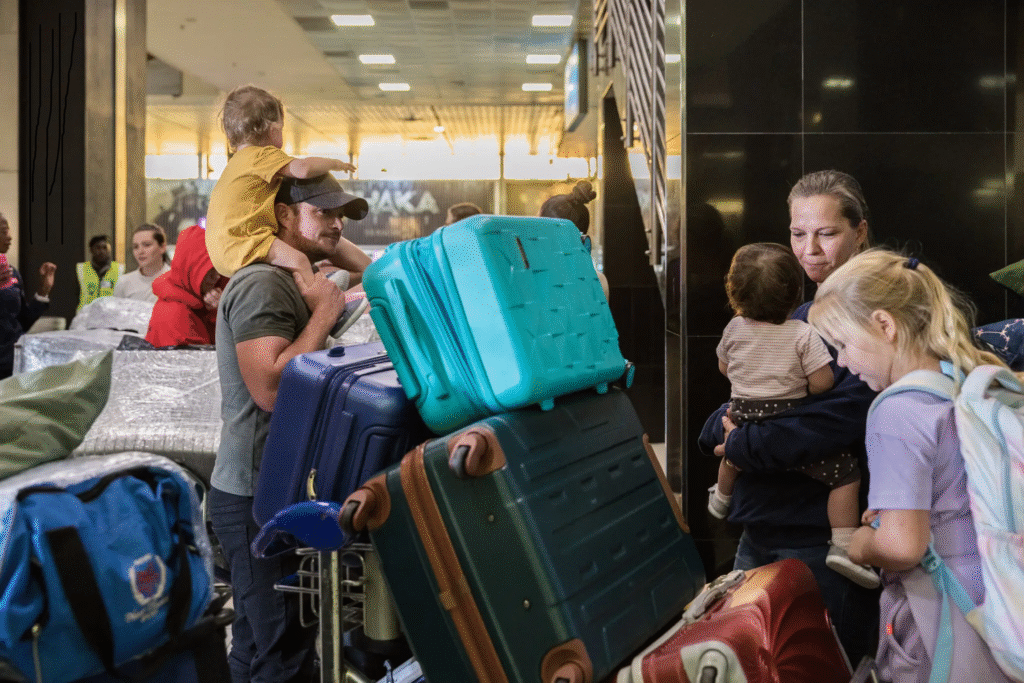
Since 2018, Mr. Trump has been criticizing South Africa’s suggested land reforms. On social media that year, he said that he had instructed his secretary of state to “closely study the South Africa land and farm seizures and expropriations and the large scale killing of farmers.”
In a tweet days before Mr. Trump’s executive order to halt aid to the nation, Mr. Ramaphosa defended the recently enacted Expropriation Act, saying that it was “not a confiscation instrument, but a constitutionally mandated legal process.” He stated that he was eager to clarify the distinction to the Trump administration.
There is no evidence in police records to back up claims that white farmers are being specifically targeted for murder. However, Christopher Vandome, a senior research fellow in the Africa program at the think tank Chatham House, pointed out that such assertions reflected a broader dread among Afrikaners in South Africa.
According to Mr. Vandome, a significant portion of the disagreement surrounding the farm fatalities and the land bill was caused by a “sense of victimhood due to the paranoia of always expecting there to be retribution for what happened in the past.”
In its criticism of South Africa’s racially based legislation, the Trump government was employing “a mix of fact and misinterpretation,” he said.
According to Mr. Vandome, “This is sort of the Trumpian way. You combine these things, which makes it really, really difficult to engage with.”














